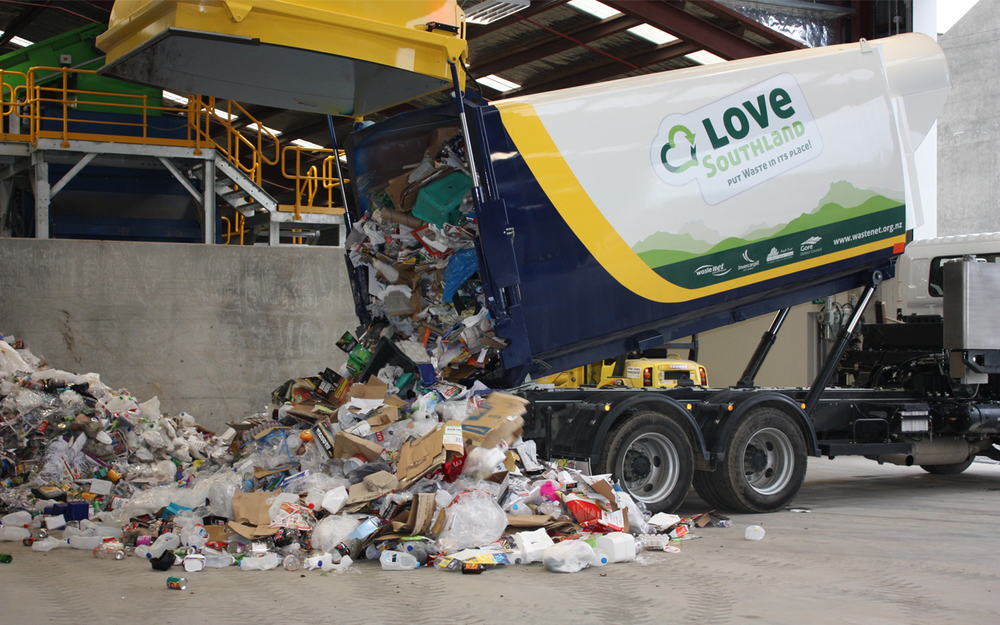Controversial recycling reports unveiled
Claire Kaplan
16 October 2019, 5:21 PM
 Confidential documents released under the Official Information Act shed some light on the decision-making around Southland's controversial recycling contract.
Confidential documents released under the Official Information Act shed some light on the decision-making around Southland's controversial recycling contract.Documents obtained through an Official Information Act request have shed some light on why a competing recycling service was seen by some as a better choice than long-time contractor Southland disAbility Enterprises.
A lengthy, public-excluded agenda from a Southland District Council extraordinary meeting held this June details concern over Southland disAbility Enterprises' financial resilience, health and safety performance, and the steep price tag it put on renewing its recycling services for the long-term.
The agenda and its attached reports from joint council service WasteNet have just been released to Advocate South as a result of an OIA request we made in June this year.

The report says that renewing Southland disAbility Enterprise's (SdE) contract to process Southland's recycling would have cost an extra $11 million over the course of a potential 15-year period, compared to what a competing service was proposing.
Despite the 35% increase, SdE's tender proposal wanted to reduce its services, such as limiting which products it would recycle, and showed little flexibility to adapt to the quickly changing recyclables industry, according to the OIA documents.
Concern was also expressed over the SdE management team's lack of experience and "their ability to manage health and safety risks".
"SdE provided their company accounts for the previous financial year," a WasteNet evaluation report says.
"These demonstrated SdE had operated at a loss and are dependent on sufficient cost recovery through the WasteNet contract to remain financially viable. They would not be financially viable in their current form unless they were successful in the RFP [request for proposals] process."
The not-for-profit company has held the contract since 2011. It employs 110 people, 82 of whom have a disability.
The contract to manage all of Southland's recycling went to tender in late 2018. Controversy quickly surrounded the issue this year when SdE broke confidentiality with WasteNet, announcing it was not the preferred tenderer.
Before WasteNet went to tender, documents indicate SdE asked for a price bump of approximately $700,000 per year due to financial difficulties.
The three WasteNet councils (Southland District, Gore District, Invercargill City) instead offered a $380,000 "rescue package" in the form of an advance payment.
The council agenda says negotiations between WasteNet and SdE continued thereafter, but it became evident SdE was seeking a "very significant" increase in contract payments.
An industry report by Tonkin and Taylor also exacerbated the decision to go to tender, since it found nationwide rates for recycling were significantly less than the price per tonne that SdE was seeking.
WasteNet ultimately received two proposals for its long-term recycling contract. The competing tenderer's proposal cost $750,000 per year less than SdE's. It offered options to create a purpose-built facility in Invercargill that used automated equipment, reducing health and safety risks posed to staff from manual sorting.
The second proposal also offered the option of adding a glass-only kerbside collection to its services.
In June, SdE's contract with WasteNet was extended for another 12 months.
However, the extension didn't offer any guarantee that SdE would be given another shot at a long-term contract, having already been ruled out during WasteNet's assessment of the tenders received.
In June, the Southland District Council and Gore District Council voted in favour of WasteNet's recommendation to award the contract to the preferred tenderer.
The Invercargill City Council voted against it, in what came to a close vote.
The name of the competitor behind the second proposal is redacted in the released documents because the tender for recycling processing is still open. However, it has been widely, and publicly, assumed the preferred tenderer is Smart Environmental Ltd, a New Zealand-owned company that has operated in the waste management sector for more than 25 years.
Southland disAbilities Enterprises has asked the Auditor General to investigate the region's waste management tender process claiming, among other things, that the Waste Advisory Group does not have delegated authority to award contracts for Waste Management Services, that the Request for Proposal was not authorised by the Invercargill City Council and Gore District Council, and that the WasteNet recommendation to the three councils was based on a Proposal Evaluation Report that was "seriously inaccurate".
The newly elected Invercargill City Council will meet for the first time on October 29. It is not yet known whether the WasteNet issue will be on the agenda.

A WasteNet Southland recycling mobile bin truck emptying into the load bay at the Material Recovery Facility in Invercargill. PHOTO: WasteNet